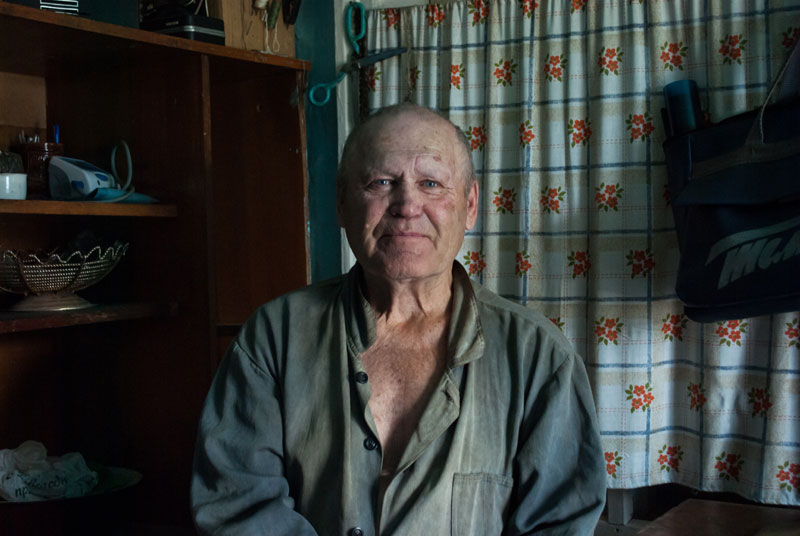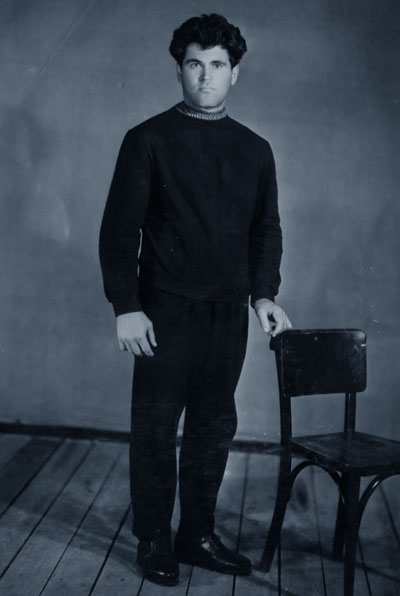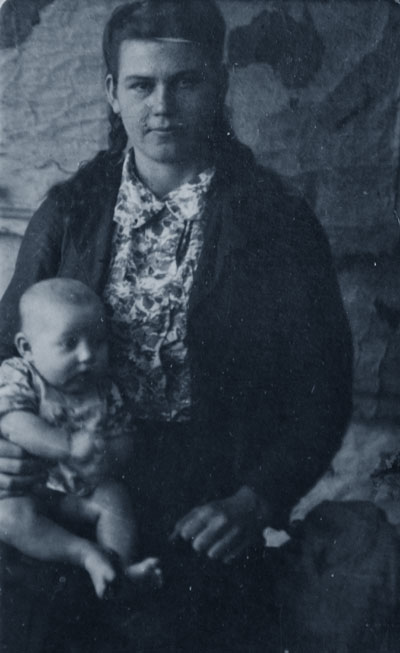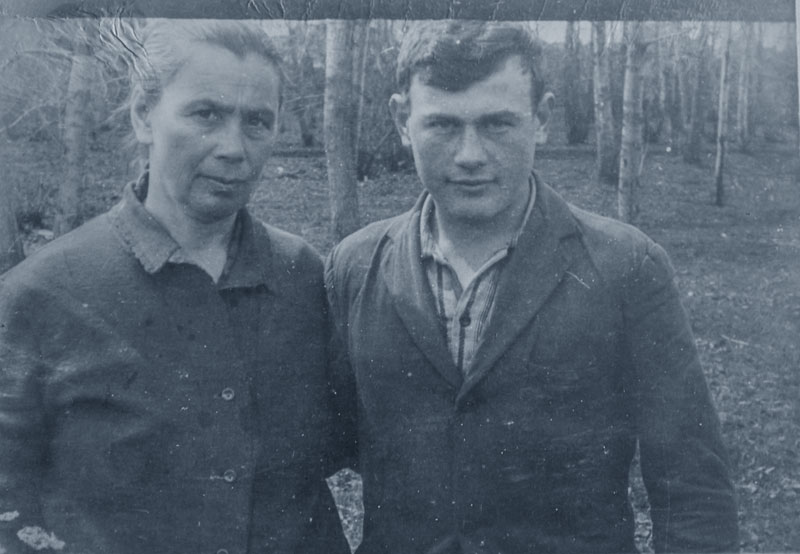









 Lives in the hamlet of Sagaiskoe, Karatus District, Krasnoyarsk Region.
Lives in the hamlet of Sagaiskoe, Karatus District, Krasnoyarsk Region.
Born in 1937 in the hamlet of Straub, District of Kukkus, Saratov Region.
Father: Peter (Piter) Augustovich (born 1899), mother: Amalia (maiden name Metzer, born 1896). Brother: Viktor (born 1929; sisters: Theresa (born 1926) and Maria (born 1928).
The parents worked for the kolkhoz farm, but they also had their own little farm – a cow, sheep, a vegetable garden.
He cannot remember deportation, for he was only four years old at that time. According to what his sister told him, they were taken to Saratov on board a barge; from there they went to Abakan by freight car and then to Sagaiskoe, but she does not recall whether they were transported to final destination by car or horses. However, she can still remember that at first they were quartered in some abandoned hut. She was about 40 square meters in size, and four families had to live there together. The leader had given instructions to remove all vacant huts in the region from their site of erection and remove them to Sagaiskoe.
Within the family they spoke exclusively German. Ewald Petrovich, due to his contacts with other children, managed to learn the Russian language before he came to school. For elder children and adults it was much more difficult. During the 5th term Ewald Petrovich practically had to learn German once again from the very beginning, since his Swabian dialect differed considerably from the „official“ German language, although it was, of course, easier for him to follow the lessons, than for it was for his Russian classmates. In general, it is a matter of fact that the Germans living in various hamlets (Taskino, Karatuskoe, Motorskoe, Sagaiskoe) speak slightly different dialects. His neighbor Neiman left for Germany, and when she later returned for a visit, she was already called Neumann.
Already during the war they acquired a cow (maybe they received them as a replacement for the one they had to leave at the Volga).
During the first time people did not behave well towards the Germans – in each family someone had gone to the front to fight against the Germans, and now they appear right here – these „fascists“. Later the situation improved, but it still happens that they are being abused.
His father and sisters were mobilized to the labor army in 1942, where he was killed in the Kirov Region. He had worked there as a lumberjack to procure timber for the thermal power station. Two or three man returned from there as cripples. Theresa worked for the labor army in Ufa, in a factory, Maria worked for a kolkhoz farm. While Theresa was in the labor army, she saw German prisoners-of-war and talked to them.
The mother got a serious cold in 1946, she died. In 1948 his sister was demobilized from the labor army.
Ewald Petrovich and the other children always worked during the summer time. In the beginning he used to transport hay bales, later he worked with a rake pulled by horse.
When Ewald Petrovich was 16 years old, he was forced to go and get registered with the commandant’s office once a month. The commandant’s office was located in Sagaiskoe, but the commandant used to come to where they lived, and then they had to get registered at the village Soviet.
When Ewald Petrovich made a trip to Straub in 1970, he was hardly able to recognize the hamlet. He was told: fascist – you better immediately hit the road…
In 1962 and 1966 special re-settlers from Mordovia were taken to Sagaiskoe.
Amenities for victims of political repressions are not really high. Once a year they get 3.000 rubels for firewood; they receive medicaments at no charge, but in no way those they actually need.

E.P. Schwabenland 1965

Maria Schwabenland and her son

Theresa Schwabenland and her son
The interview was held by Aleksey Babiy and Tatyana Nazarets.
Expedition of the V.P. Astafev State Pedagogic University Krasnoyarsk and the Krasnoyarsk „Memorial“-Organization on the project „Anthropologic turn in social-humanitarian sciences: Methodology of field research and practical experience in the realization of narrative interviews“ - (Sponsored by the Mikhail-Prokhorov Foundation).